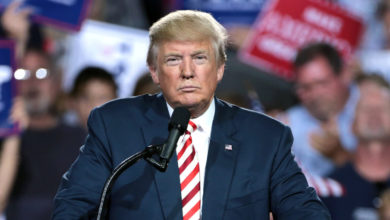Italian politics experienced an earthquake in the national parliamentary election of March 5, as the traditional parties of the center-left and right suffered heavy losses. This coincided with the dangerous rise of far-right organizations and ideas. No single party won the necessary plurality of votes to be able to govern alone, and protracted and difficult coalition negotiations appear to be on the horizon.
Right-wing parties gain
Among the parties with the strongest showing on Monday were the 5-Star Movement (M5S) which emerged in the lead with almost 32 percent of the overall vote, and the Northern League, which secured a shocking 17.7 percent of the vote, more than four times the 4.1 percent they received in the most recent elections in 2013. Both parties have previously expressed a total disdain for participation in a coalition government together, but there has been an apparent partial thaw in relations as the prospect of an anti-European Union coalition government looks conceivable.
The Northern League has risen to become the senior partner in the right-wing bloc, which includes the billionaire former Prime Minister Silvio Berlusconi’s Forza Italia (Go Italy!) and the explicitly pro-Mussolini Brothers of Italy as well as the fascist organization CasaPound. Until now, Forza Italia has held the preeminent position in this grouping with Berlusconi, who is barred from holding office as the result of a previous conviction for fraud, as its de facto head. The sudden electoral success of the Northern Leage has upset that balance, placing party leader Matteo Salvini at the head of this bloc. At present, Berlusconi has committed Forza Italia to supporting their newly ascendant senior partner, referring to himself as the grouping’s “guarantor.”
Lega Nord began as a secessionist movement in the northern region of Italy, encompassing an area that party members referred to as “Padania.” While historically focused more narrowly on Padanian nationalism, the secessionist party has adopted an Italy-wide character under Salvini, who took over as head of the party in 2013. While retaining a focus on greater autonomy for local governments, especially for those in the north, Salvini has shifted focus toward a xenophobic call for a halt to further immigration into Italy, a promise to deport one hundred thousand migrants a year if made Prime Minister, as well as hostility towards the European Union.
This “Euroskeptic” view is shared by the 5-star Movement. The populist orientation of this group, which eschews the label of “party” and insists that it cannot be properly classified using the framework of the left-right political spectrum, has been well received in the generally under-developed southern regions of Italy. While decidedly less vitriolic than the Northern League and the other right-wing parties, M5S holds a generally hostile view of immigration. Party leader Luigi di Maio has repeatedly employed xenophobic rhetoric in the course of the campaign.
Fascism on the rise in Italy
The Italian economy has long been one of the least robust in the European Union, especially since the 2008 world economic crisis. The ruling class of the EU, like the elite all over the world, shifted the burden of the crisis onto the backs of poor and working people through devastating austerity measures and other attacks on the people’s social rights. Many of these policies were implemented with the support of or even under the direction of the Democratic Party, which falsely presents itself as a progressive, left-wing party. This provided an opening for the far right to be the main beneficiaries of anti-establishment sentiment, which they have attempted to channel into anti-immigrant racism.
In addition to the Northern League, which maintains a relatively softer image, unapologetic fascist parties such as Brothers of Italy and CasaPound have found ample room to grow in the margins. Brothers of Italy in particular has embraced the image and legacy of Mussolini, claiming a direct descent from him to their leadership while carefully avoiding making the same claim of descent from his Fascist Party, which is officially banned by the Italian Constitution.
CasaPound, named for the American fascist poet Ezra Pound, has alarmed many in Rome by their increasing presence on the political scene, particularly after the party won a seat on the Municipal Council in the district of Ostia. While this does not constitute a major political presence in the city of Rome or Italy at large, it is a major step toward legitimizing the party in the eyes of the public.
Violence as a political tool is nominally disavowed by the neo-fascist organization. Nevertheless CasaPound members, including party leader Simone di Stefano, have reportedly engaged in such violent actions as “beach patrols,” harassing and attacking vendors they suspect to be immigrants as well as non-Italians generally on public beaches. Party members also clashed with police in a recent demonstration against proposed legislation to grant citizenship to the children of immigrants living in Italy, drawing national attention as well as antifascist counter-demonstrators.
Anti-fascists respond to fascist upsurge
Even as the neo-fascist presence in Italy continues to grow, there is a wave of anti-fascist activity that is rising to protest and expose these new incarnations of the old, vile ideology. While Italy was the first country to fall under fascist rule in the 1920s, it was also the home to a militant, communist-led anti-fascist movement whose struggle culminated in the overthrow of Mussolini’s regime. The prestige of this tremendous accomplishment propelled the Italian Communist Party to the forefront of Italian politics in the period between the end of World War Two and the overthrow of the Soviet Union.
Demonstrations called by the National Association of Italian Partisans on February 24, 2018 drew thousands of antifascists to the Piazza Venezia in Rome, who declared their commitment to defeating racism, nationalism, and resurgent fascism in the best tradition of generations of antifascist fighters in Italy. Similar actions continue to be organized across the country to fight the far right and the capitalist system that paves the way to their rise.





